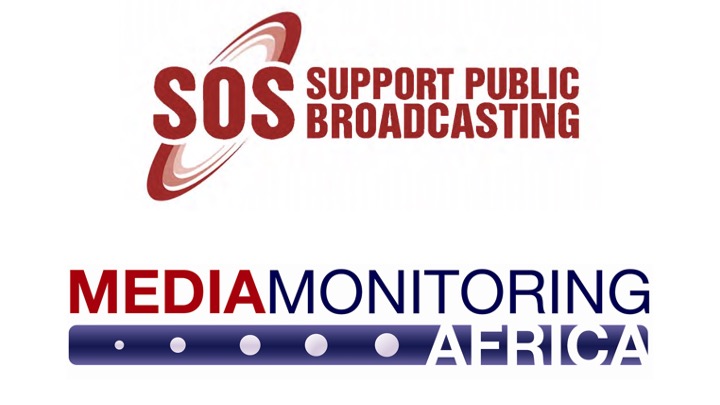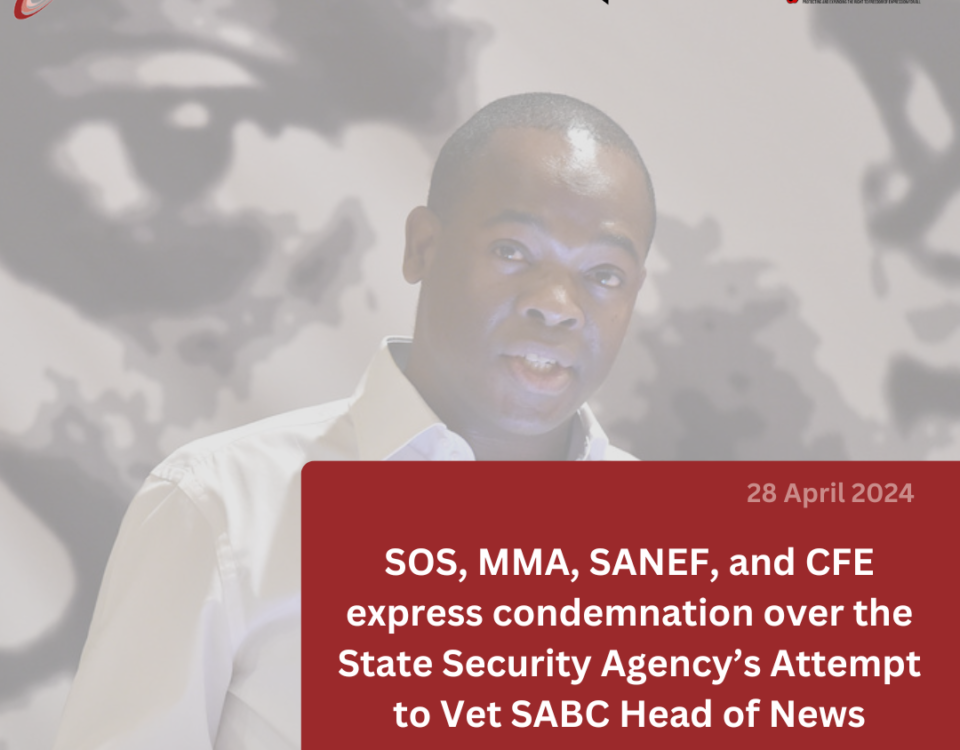Digital Migration: The train has left the station!
February 13, 2020
SOS and MMA Statement on SABC S189 Notice to Staff
July 1, 2020Covid-19 ICT Regulations: Local Content Quotas

The SOS Coalition and Media Monitoring Africa (MMA) are deeply concerned by the Independent Communications Authority of South Africa’s (ICASA) decision to publish amendments to its Covid-19 ICT Regulations which exempt all television broadcasters, including the SABC, from local content quotas during and for some months after the National State of Disaster occasioned by Covid-19.
Specifically, ICASA’s new ICT COVID–19 National Disaster Amendment Regulations state, at section (8A), that “television broadcasting service Licensees are exempted from compliance with the local television content quotas and specific advertising and programming requirements in terms of licence conditions during the National State of Disaster.”
Furthermore, (8D) states that “the exemptions indicated in sub regulations (8A) and (8B) shall automatically cease upon expiry of three (3) months of termination of the National State of Disaster.”
Effectively, section 8A frees up the SABC and all other television broadcasters to broadcast only foreign content during the National State of Disaster and for 3 months thereafter.
There are many reasons why these provisions are problematic, starting with the fact that there is no certainty around how long the National State of Disaster will last because we have no way of saying how long Covid19 will remain a threat to us. Internationally, experts are positing that a vaccine is 18 months to two years away. ICASA’s approach should be to determine (since the virus is here to stay for the foreseeable future) which strategies should be adopted that would protect the entire broadcasting eco-system.
This blanket exemption is also problematic because the Performance Period, which is the total number of hours between 05h00 and 23h00 every day during which local broadcasters needed to comply with local content quotas, has already been reduced by 4 hours under the Covid-19 ICT Regulations published in April 2020. This automatically reduces the required number of hours of required local content in any event.
Thirdly, the Regulator’s actions are not aligned with the government’s own official Risk Adjusted Strategy that, while not perfect, at least seeks to find flexible ways to bring businesses and people back to work, while being cognisant of the risks posed by Covid19. In level 4, the Government has made provision for production houses to reopen and begin shooting, so the broadcasters and ICASA ought to have looked at reduced quotas or at least required best effort endeavours on the part of broadcasters to meet their local content requirements.
We are concerned it appears that the regulator made such critical decision without having canvassed widely. We note that government had allowed the local production sector back to work under Lockdown 4. This move would have afforded the regulator to engage stakeholders, even if it was within a shortened public notice and comment procedure.
While full public consultation is not legally required under National Disaster regulations, instead of a blanket removal of local content quotas, the regulator should have consulted the local production sectors and other stakeholders to find an alternative mechanism for relaxing local content quotas on a sliding scale of sorts, that takes into account the official risk adjusted strategy of allowing different industries to operate at varying capacities in different lockdown levels and the nature of the broadcaster (commercial, community, public, public community, subscription) and the differential impacts of Covid-19 on such broadcasters.
Furthermore, a process with some form of public consultation to hear external views might have alerted ICASA to the danger of not having a nuanced approach that considers the different needs of different broadcasters. The current regulations offer no useful distinction between the SABC and other broadcasters. The SABC has a critical role to play and given the extraordinary lengths many of the broadcaster have gone to keep reporting during this difficult time, as well as other measures to provide and offer credible information on the Covid19 crisis, it is deeply unfortunate that the quotas were simply removed.
Now more than ever, local content has become critically important. Reports from the Public Media Alliance, show that Public broadcasters across the globe are not only ramping up their public education content related to Covid19 but they are also doubling down on efforts to produce and broadcast local content in their efforts to ensure the sustainability of the production sector. These exemptions may be counterproductive and serve to limit the positive and impactful role that the local production sector has proven itself to be capable of playing, as it has done in past public health crises such as the HIV/AIDS epidemic. The local production sector should have been given an opportunity to assist broadcasters to meet the public mandate and deliver context relevant public health content.
The public have demonstrated great support for local content, as evidenced by the consistently high ratings that local TV shows have been receiving across the board. Now is the time to reach out and strengthen ties with the local production sector and provide the content that we know is locally relevant, appealing and speaks to the country’s context. These regulations are deprioritising of the public mandate, the information needs of South African audiences and crippling the development of the local content sector.
Therefore, we urgently call on ICASA to reconsider the provisions of section 8A of the Covid ICT Regulations and to amend these to ensure that the local television production industry does not collapse during the National State of Disaster. We also call on all broadcasters operating in South Africa to do better and put the public interest and the people living in this country first and to publicly endorse the continued flighting of local content, including new local content produced under the Lockdown 4 provisions.
ENDS

